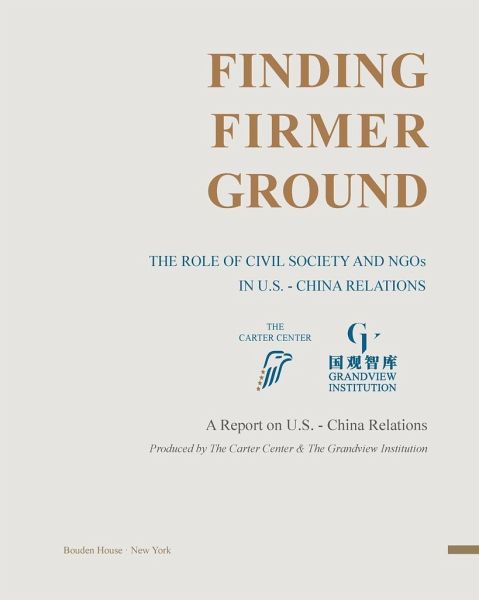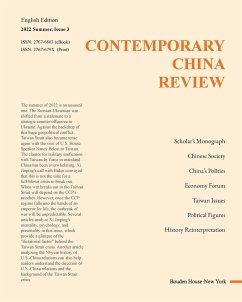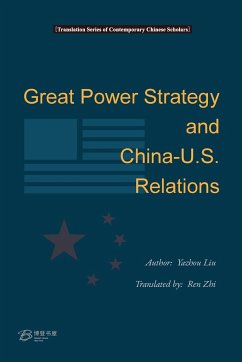Nicht lieferbar

Finding Firmer Ground
The Role of Civil Society and NGOs in U.S. - China Relations
Versandkostenfrei!
Nicht lieferbar
The South China Sea issue's complexity goes far beyond disputes over maritime sovereignty, natural resources, and waterway passages. It is about great power competition at the strategic level. The United States finds it increasingly challenging to keep the Chinese navy in China's adjacent waters, especially when China has been exerting a "reactive assertiveness" by utilizing its comparative advantages such as massive civilian resources and geographical proximity. The truly constructive course is first to restore stability. It primarily requires the self-restraint of both China and the United S...
The South China Sea issue's complexity goes far beyond disputes over maritime sovereignty, natural resources, and waterway passages. It is about great power competition at the strategic level. The United States finds it increasingly challenging to keep the Chinese navy in China's adjacent waters, especially when China has been exerting a "reactive assertiveness" by utilizing its comparative advantages such as massive civilian resources and geographical proximity. The truly constructive course is first to restore stability. It primarily requires the self-restraint of both China and the United States, the two main players in the South China Sea disputes. However, the resolution of the South China Sea issue is not merely about ending great power competition. It is also about the maritime environment, natural resources, sea-lane security, disaster relief, and more. None of these can be realized without all involved parties' self-restraint. Beijing and Washington should take the initiative. The rationale is simple and explicit, though challenging: If both China and the United States have enough time and energy at the current moment for a duel, a possible or even better course is to step away from pointless and dangerous confrontation and attend to the survey, maintenance, and joint development of natural resources and maritime environment in the South China Sea.











